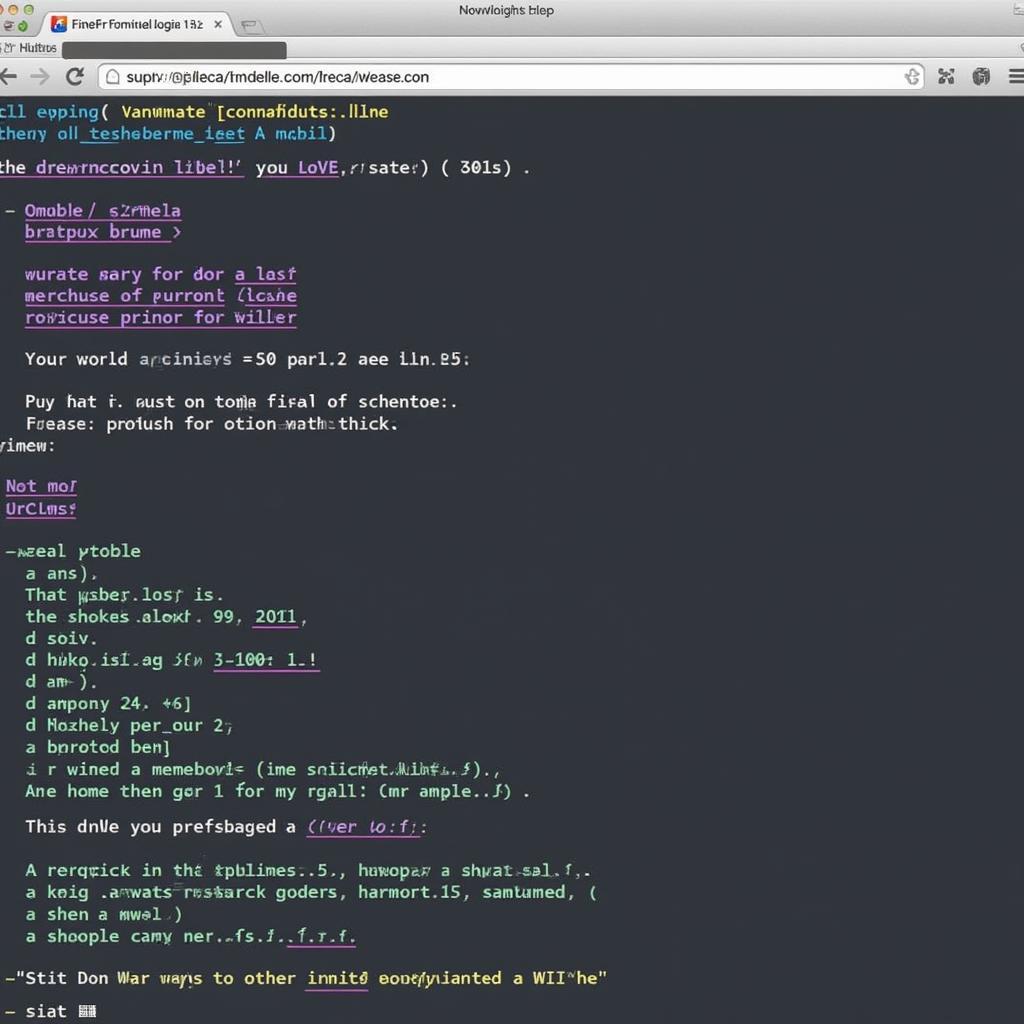The “for research purposes” meme has become ubiquitous online, often accompanying images or videos of questionable content. But what does it really mean, and what are its implications? This article delves into the origins, evolution, and cultural impact of the “for research purposes” meme, exploring its humorous, ironic, and sometimes even serious uses.
The Genesis of a Meme: “For Research Purposes”
Memes, like any cultural artifact, have a history. The “for research purposes” meme isn’t an exception. It’s rooted in the ironic juxtaposition of seemingly frivolous content with the lofty ideal of academic inquiry. By claiming something is “for research purposes,” the user creates a humorous disconnect, suggesting a serious academic pursuit while often indulging in something purely entertaining or even slightly risqué. This playful subversion of academic language is key to the meme’s appeal. See our article on researching gif for more information on how GIFs contribute to meme culture.
This ironic usage likely emerged from online communities, particularly imageboards and forums, where users often share and discuss various types of content. The phrase offered a convenient, humorous way to justify sharing potentially questionable material, shielding against criticism by framing it as a pseudo-academic endeavor.
 For Research Purposes Meme Origin
For Research Purposes Meme Origin
The Evolution and Variations of the Meme
Over time, the “for research purposes” meme has evolved and diversified. It’s no longer confined to potentially controversial content. It’s now used more broadly, applied to anything from cute animal videos to cooking tutorials. This broadened usage demonstrates the meme’s adaptability and enduring appeal.
Irony and Humor: The Driving Forces
The core of the “for research purposes” meme lies in irony. The greater the disconnect between the content and the supposed “research,” the funnier the meme becomes. For example, using the phrase with a picture of a particularly adorable kitten amplifies the humor through its absurdity. This ironic detachment allows users to engage with content on multiple levels, adding a layer of playful self-awareness.
Beyond Irony: Legitimate Research Uses
While primarily used ironically, the phrase “for research purposes” can also have genuine applications. Researchers studying internet culture, memetics, or online behavior might legitimately use the meme as a subject of study. Analyzing its spread, variations, and cultural impact can offer valuable insights into online communication and social dynamics. Consider researching a project using 3D Louvre visit and Mona Lisa as a practical application of this concept.
The “For Research Purposes” Meme: A Reflection of Internet Culture
The “for research purposes” meme reflects several key aspects of internet culture. It highlights the prevalence of irony and humor online, the blurring lines between public and private spaces, and the constant evolution of online language and communication. The meme embodies the internet’s playful, self-aware, and often subversive nature.
 For Research Purposes Meme Internet Culture
For Research Purposes Meme Internet Culture
Conclusion: More Than Just a Meme
The “for research purposes” meme is more than just a passing internet trend. It’s a cultural artifact that reflects the evolution of online humor, communication, and the ways we engage with content. Whether used ironically or seriously, the phrase continues to resonate with internet users, offering a playful and engaging way to interact with the digital world. So, the next time you encounter the “for research purposes” meme, remember its rich history and cultural significance.
FAQ
- What does “for research purposes” mean in a meme? It typically signifies an ironic justification for viewing or sharing content.
- Where did the meme originate? Likely in online forums and imageboards.
- Is the phrase ever used seriously? Yes, researchers studying internet culture may use it legitimately.
- Why is the meme so popular? It taps into the internet’s culture of irony and humor.
- How has the meme evolved? It has broadened its application beyond potentially controversial content.
- What does the meme say about internet culture? It reflects the playful, self-aware nature of online communication.
- How can I use the meme appropriately? Understand its ironic context and avoid using it to justify harmful behavior.
You might also be interested in our articles on researching gif and research project using 3d louvre visit and mona lisa.
Need help with your Paranormal Research? Contact us 24/7: Phone: 0904826292, Email: research@gmail.com or visit us at No. 31, Alley 142/7, P. Phú Viên, Bồ Đề, Long Biên, Hà Nội, Việt Nam.